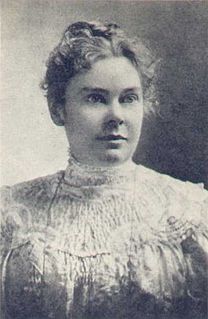A Quote by Walter Gropius
The utilization of flat roofs as 'grounds' offers us a means of re-acclimatizing nature amidst the stony deserts of our great towns; for the plots from which she has been evicted to make room for buildings can be given back to her up aloft.
Related Quotes
Geometry is of much assistance in architecture, and in particular it teaches us the use of the rule and compasses, by which especially we acquire readiness in making plans for buildings in their grounds, and rightly apply the square, the level, and the plummet. By means of optics the light in buildings can be drawn from fixed quarters of the sky. Difficult questions involving symmetry are solved by means of geometrical theories and methods.
It is not possible to make great buildings, or great towns, beautiful places, places where you feel yourself, places where you feel alive, except by following this way. And, as you will see, this way will lead anyone who looks for it to buildings which are themselves as ancient in their form, as the trees and hills, and as our faces are.
I thought as I rode in the cold pleasant light of Sunday morning how silent & passive nature offers, every morn, her wealth to man; she is immensely rich, he is welcome to her entire goods, which he speaks no word, only leaves over doors ajar, hall, store room, & cellar. He may do as he will: if he takes her hint & uses her goods, she speaks no word; if he blunders & starves, she says nothing.
Sometimes a fog will settle over a vessel's deck and yet leave the topmast clear. Then a sailor goes up aloft and gets a lookout which the helmsman on deck cannot get. So prayer sends the soul aloft; lifts it above the clouds in which our selfishness and egotism befog us, and gives us a chance to see which way to steer.
A woman will test you to see if you are what you say you are. Any woman that you fall in love with: She loves you too, but she's going to try you; that's her nature. She has to know that she can depend on you; she has to know that you will stand up for her. She has to know that you will back up the children that she brings in the world for us.
Our mother always taught us to be in control of our voice and our bodies and our work, and she showed us that through her example. If she conjured up an idea, there was not one element of that idea that she was not going to have her hand in. She was not going to hand that over to someone. And I think it's been an interesting thing to navigate, especially watching you do the same in all aspects of your work: Society labels that a control freak, an obsessive woman, or someone who has an inability to trust her team or to empower other people to do the work, which is completely untrue.
Her life her life had taken on the shape of a terrible mistake. She hadn't been given the proper tools to make a real life with, she decided, that was it. She'd been given a can of gravy and a hair-brush and told, "There you go." She'd stood there for years, blinking and befuddled, brushing the can with the brush.
Nearly every morning, a certain woman in our community comes running out of her house with her face white and her overcoat flapping wildly. She cries out, "Emergency, emergency," and one of us runs to her and holds her until her fears are calmed. We know she is making it up; nothing is has really happened to her. But we understand, because there is hardly one of us who has no been moved at some time to do just what she has done, and every time, it has taken all our strength, and even the strength of our friends and families, too, to keep us quiet.
Rhoda comes now, having slipped in while we were not looking. She must have made a tortuous course, taking cover now behind a waiter, now behind some ornamental pillar, so as to put off as long as possible the shock of recognition, so as to be secure for one more moment to rock her petals in her basin. We wake her. We torture her. She dreads us, she despises us, yet she comes cringing to our sides because for al our cruelty there is always some name, some face which sheds a radiance, which lights up her pavements and makes it possible for her to replenish her dreams.






































